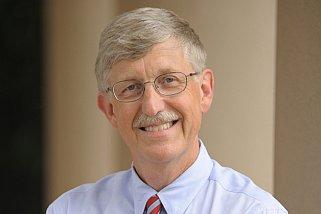As students we reach many thresholds: graduating high school, getting into college, getting into graduate school or medical school, completing our postdoctoral fellowship, residence, or internship. Many times, we spend a major portion of our time planning for the next threshold.
The pandemic has brought with it numerous hours to fill with some otherwise atypical activities. Admittedly, I’ve found myself turning to streaming series/shows far too often. It has certainly served as distraction and respite from other challenges, but it also allowed me time to catch up on desired viewing. Brené Brown’s The Call to Courage video on Netflix was at the top of my list. (Full disclosure, the video has lots of storytelling at the beginning and research findings shared near the end). Dr.
“Be okay with being uncomfortable.” This is a quote that I read every day to remind myself that there may be days when I feel that I am not qualified enough to accomplish my goals. In my younger days, I was never afraid to experience things for the first time that were out of my comfort zone. Through life’s experiences, I saw self-doubt and imposter fears encroach on my fearlessness, and I had to develop strategies to work through these emotions.
We often wonder to ourselves, “Where has the time gone?” or find ourselves wishing that there were more hours in the day. As we continue to ponder that question or wait for that wish to come true, let’s consider our perspective on time!
In her viral BuzzFeed essay, “How Millennials Became the Burnout Generation,” Anne Helen Petersen thoroughly details how economic and social demands/constraints have led millennials to feel burnt out. Unlike previous generations, millennials accrued more education, more debt, and were more willing to put career progression ahead of anything else.
Many are familiar with FOMO (Fear of Missing Out). This acronym was coined by Patrick McGinnis, an entrepreneur and investor, during his time at Harvard Business School. As a small-town boy from Maine he describes the overwhelming nature of being “transplanted from a calm place with a simple lifestyle to a hub of 1,800 highly ambitious, connected young people.” His mania to try to fit it all in led to his FOMO discovery and his book FOMO Sapiens is now available.

Recently, we received wellness tips from NIH Director, Dr. Collins. In case you missed it, you can check it out here. Part of that discussion revolved around how establishing a career in science and maintaining a healthy work-life balance can be stressful.

OITE was lucky enough to recently connect with the Director of the National Institutes of Health, Dr. Francis Collins. He offers valuable tips from his own life and experiences. This is a must read for all, especially scientists just starting out in their careers.
You are well known for your hobbies (music and motorcycles to name two) on top of your professional accomplishments. How do you maintain all of your varied vocational and avocational interests?
The Office of Intramural Training and Education (OITE) of the NIH extends a warm welcome to the Summer 2017 interns. Over the next few months, you will engage in many unique opportunities in biomedical research that will encourage you to consider pursuing careers and further graduate study in the field. As you are settling in to your lab and meeting your PIs and fellow trainees, we want to make sure that you are aware of a variety of helpful blog posts that will help you to maximize your summer experience.

